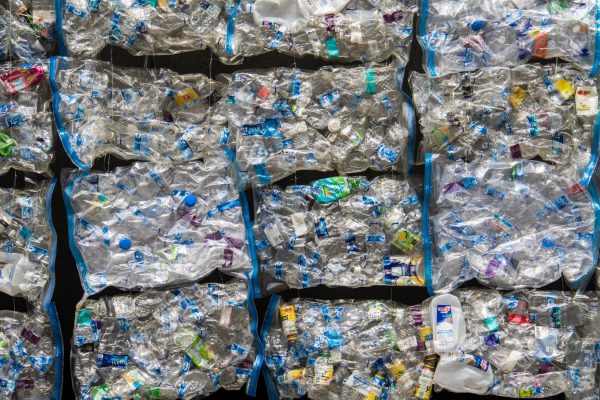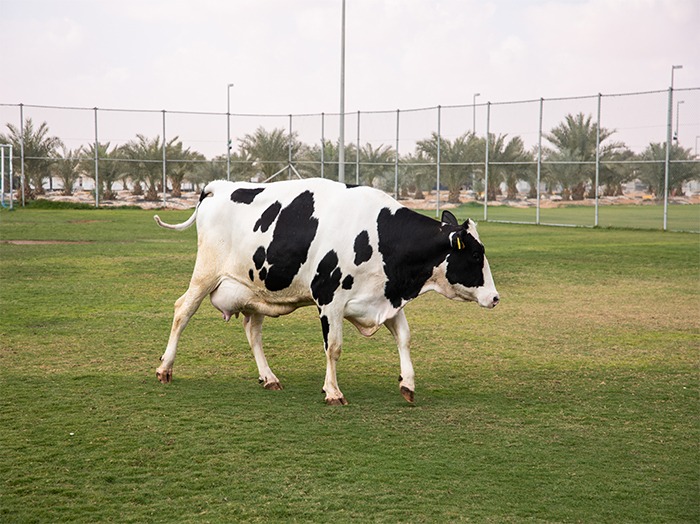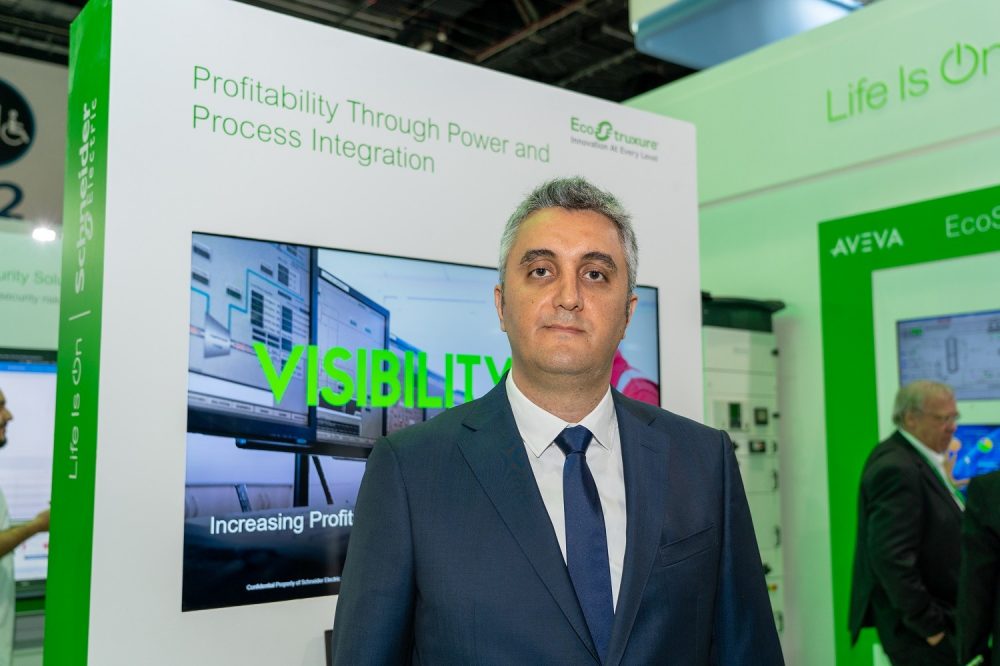Life After COVID: Green Recovery
Waste Management

January 21, 2021, 8:02 am
By Sébastien Chauvin, CEO of Veolia Middle East
The COVID-19 pandemic sent shockwaves through global supply chains. For the first time in modern manufacturing history, demand, supply, and the available workforce were affected globally at the same time. The strain the pandemic conditions have placed on our worldwide industrial infrastructure has ultimately shined a light on several critical shortcomings.
Veolia has launched in Abu Dhabi the UAE’s first free-of-charge digital service to collect recyclables and to incentivize responsible behaviour, called Recapp. The app offers an on-demand, free of charge, door-to-door collection service for recyclable material such as plastic bottles and aluminium cans.
During the ongoing crisis and due to the extreme quarantine measures, we have also seen many positive changes from all around the world, such as improved environmental conditions including reduction in CO2 emissions, emission of greenhouse gases and ozone layer depletion. Globally, the only time carbon dioxide emissions have decreased in the past twenty years is during economic slowdowns, such as the 2008 financial crisis or last year’s COVID-19-related restrictions: global CO2 emissions decreased by 8.8% (−1,551 Mt CO2-eq) in the first half of 2020 as compared to the same period in 2019.
On the other hand, the world has also seen an increase of disposable plastic, which is highly damageable for the environment and biodiversity.
The science is beyond dispute. If global warming is to be kept to no more than +2°C by the turn of the century, compared to the preindustrial era, then global greenhouse gas emissions must fall 61% by 2050, compared to current trends. To help achieve this we must innovate and strive to help reduce, or even eliminate atmospheric emissions of greenhouse gases by our activities. If COVID-19 has taught us anything, it is the crucial need for creativity, solidarity, and innovation in terms of sustainability.
The green recovery has begun
The Covid-19 pandemic and the global economic crisis has triggered a unique occasion to make the global economic and social models more resilient. More than ever, governments and economies will be focusing their efforts and growth strategy on sustainable development and a green recovery. This is not a matter of creating a new economy from scratch but instead using the existing tools and expertise available.
This moment of recovery is an opportunity to rethink our society and develop a new growth model, which is more inclusive, resilient, circular, and digital. Digitalization has appeared to be a key resilience factor for most organizations. Furthermore, the transition to a climate-neutral economy, the protection of biodiversity and the transformation of agri-food systems has the potential to rapidly provide jobs, growth and also contribute to building more resilient societies, based on a global circular economy approach.
Veolia as a group has accelerated the roll-out of an enterprise project ‘Impact 2023’ that traces a clear and ambitious route defined by its commitment to making a positive impact for the planet and all the company’s stakeholders. Building on the results of the efforts and refocusing of the past few years, Veolia now has the strength and confidence needed to set its goals even higher with a carefully constructed and revealed ambition to be the champion of the ecological transformation.
The French transnational company has put in place business continuity plans to ensure essential services that focus primarily on producing and supplying drinking water and treating wastewater, preserving waste collection operation, safeguarding energy management activities in cooling networks, performing industrial on-site services to ensure industrial continue to operate and upholding its activities processing hazardous waste, which is vital to maintaining key industrial operations.
Additionally, Veolia has also helped to mitigate the climate emergency through various innovative projects, such as the production of renewable energy, by capturing and converting biogas in electricity, and by also installing solar panels. We currently have several renewable energy projects on-going in Dubai, Ajman, and Abu Dhabi. Developing the recycling culture is part of Veolia’s mission, with a circular economy at the heart of our approach.
Veolia also fosters adaptations to the climate emergency and its consequences by towns, cities, and industries, deploying solutions such as identification of water stress risks and water recycling to limit pressure on resources. With the implementation of appropriate desalination and water reuse strategies, Veolia contributes to supplying potable water to 1 million people within the region.
By operating wastewater systems across cities in Ajman, Abu Dhabi and Al Ain, Veolia Middle East ensures safety to more than 2.8 million residents who are connected to sanitation. The optimised management of wastewater systems helps to preserve the natural environment and the biodiversity.
Food security: a challenge that calls for green strategy only
Agriculture in the UAE faces many challenges, such as water scarcity, extreme temperatures, population growth, intense urbanisation, industrialisation, and a lack of land suitable for agriculture. Despite these issues, the UAE continues to flourish, although its increasing population growth needs to be supported by a steady food supply.
All needed resources to face this challenge are already within the region. For example, untapped potential lies with the reuse of treated water, which remains largely underutilised in MENA — according to the WRI a total of 82% is not reused. This water could provide a viable source of clean water, which is key to establishing food security programs in the region. To protect water resources, Veolia is developing irrigation solutions with treated water recycling, and has developed an innovative solution based on “intelligent reuse”. This approach makes it possible to reuse wastewater for agriculture and conserve the nutrients it contains, such as nitrogen, phosphorus, or potassium, which limits the use of chemical fertilisers.
Globally, around a third of all food is wasted and the IPCC estimated that food waste contributed to nearly 10% of all man-made greenhouse gas emissions, between 2010 and 2016. Waste management companies like Veolia have an important role to play in helping to alleviate this problem.
Veolia can use sludge and organic waste to produce fertilisers and organic amendments, which achieves the loop in the circular economy. Thanks to our expertise in water and waste, we can transform bio waste into organic fertilisers and recycle wastewater sludge on compost.
Create the green loop of plastic in the UAE
In Abu Dhabi and Dubai, more than 900,000 metric tonnes of plastic resin are used annually, with consumer packaging representing 45% of plastic used in the UAE. This is a colossal issue as most plastics do not just ‘go away’, they end up in our seas and oceans, taking hundreds of years to degrade.
By enhancing its commitment towards improving sustainable development in the UAE and widely across the Middle East, Veolia plays an active role by raising awareness to current and future generations about the environmental challenges, such as decreasing the amount of waste generated in the region, by spreading the recycling reflex. Recycling is a cornerstone of the circular economy, where others see problems, Veolia sees resources and beautiful projects that can materialise from waste.
Initiatives can be taken to help citizens limit throwing waste, and encourage people to segregate waste to ease recycling. To support this approach, Veolia has launched in Abu Dhabi the UAE’s first free-of-charge digital service to collect recyclables and to incentivize responsible behaviour, called Recapp. The app offers an on-demand, free of charge, door-to-door collection service for recyclable material such as plastic bottles and aluminium cans.










